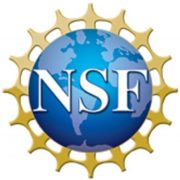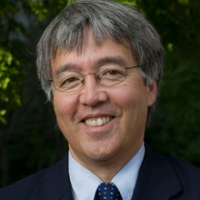NSF Graduate Research Fellowship Program
The following is a letter to the community from James Kurose, Assistant Director, and Erwin Gianchandani, Deputy Assistant Director, of the National Science Foundation (NSF) Directorate of Computer & Information Science & Engineering (CISE).

Dear CISE Community,
As we noted an year ago at this time, the National Science Foundation’s (NSF) Graduate Research Fellowship Program (GRFP) is an important but, from our experience, often overlooked funding opportunity for the Computer and Information Science and Engineering (CISE) community. The program recognizes and supports outstanding graduate students in NSF-supported areas who are pursing full-time, research-based master’s and doctoral degrees at accredited U.S. institutions. As the deadline of October 22, 2019, approaches for applicants who fall within CISE fields of study, we want to be sure you all – as members of our community – are aware of this opportunity for your undergraduate seniors and first-year graduate students.
GRFP is NSF’s oldest program, dating to the Foundation’s first fully funded year of 1952. Since then, GRFP has supported over 50,000 US citizens, nationals, and permanent residents to pursue advanced degrees in science and engineering. Among its alumni are over 40 Nobel laureates, over 450 members of the National Academies of Sciences, Engineering, and Medicine, thousands of science and engineering faculty, and many leaders in industry, government, and the non-profit sector.
Last year, GRFP awards were offered to 2,000 of the more than 12,000 applicants. Thanks in part to your efforts in response to our request at this time last year, we saw an uptick in the number of GRFP awards to students seeking to pursue CISE-related topics.
Some institutions offer support through application development programs (e.g., the University of Arizona), essay insights (e.g., the University of Missouri), workshops (e.g., the University of Utah) and other resources (e.g., the University of Iowa) – and others even require incoming graduate students to write GRFP proposals.
We’d like to again encourage you to make your CISE undergraduate seniors and first-year graduate students aware of this significant source of support – and the many benefits of the program, which include the following:
For students:
– More freedom in choosing research topics;
– More time to conduct research;
– Greater choice of research advisors;
– Prestige of the fellowship, which can lead to future opportunities; and
– Guaranteed support for a period of time in a graduate student’s career.
And for institutions:
– High-quality graduate students selected by an independent competitive process;
– Financial support; and
– Prestige – fellowship recipients enhance institutions’ national images.
Additional information on the program may be found at https://www.nsf.gov/grfp and http://www.nsfgrfp.org.
Best,
Jim and Erwin
Jim Kurose, Assistant Director (AD) of NSF for CISE
Erwin Gianchandani, Deputy AD of NSF for CISE
—
About GRFP
GRFP is a critical program in NSF’s overall strategy to develop a globally engaged workforce necessary to ensure the nation’s leadership in advancing science and engineering research and innovation. Former NSF fellows make transformative breakthroughs in STEM, are leaders in their chosen careers, and have been honored as Nobel laureates. A hallmark of GRFP is its contribution to increasing the diversity of the STEM workforce, including geographic distribution, as well as the participation of women, underrepresented minorities, persons with disabilities and veterans.
GRFP provides three years of financial support within a five-year fellowship period — $34,000 annual stipend and $12,000 cost-of-education allowance to the graduate institution. That support is for graduate study that leads to a research-based master’s or doctoral degree in a STEM field.


